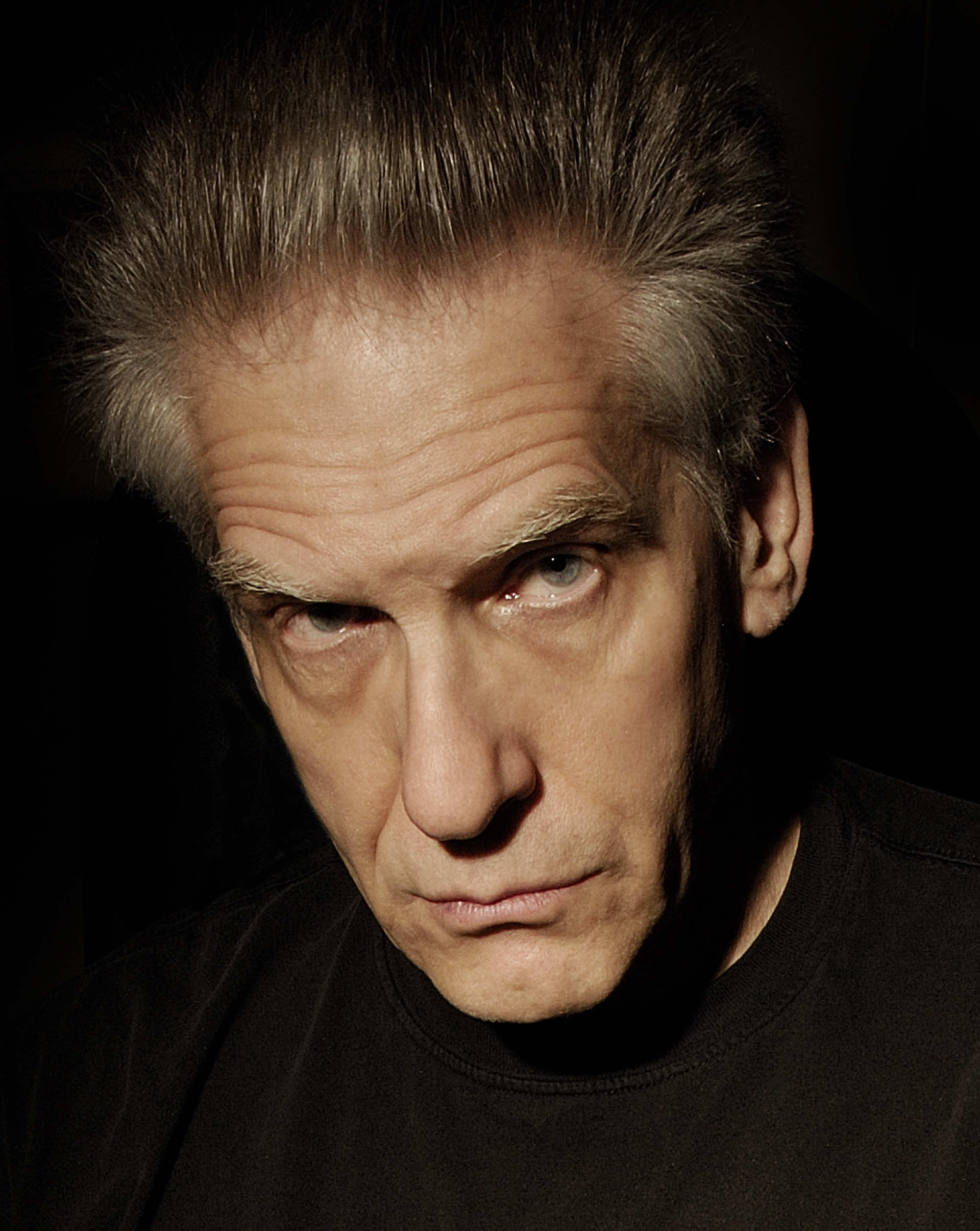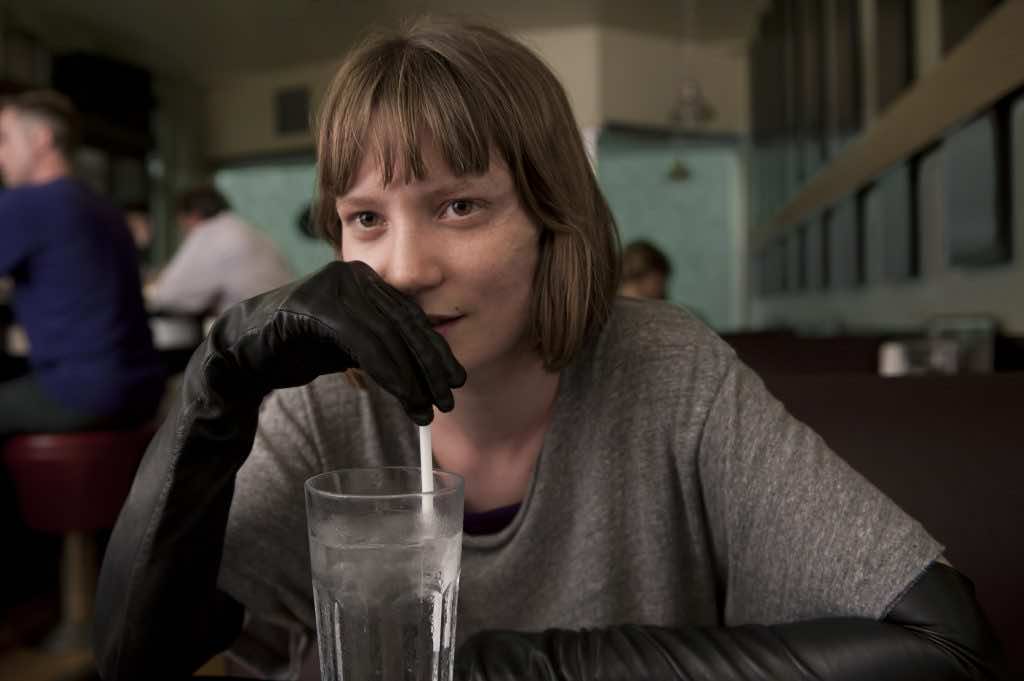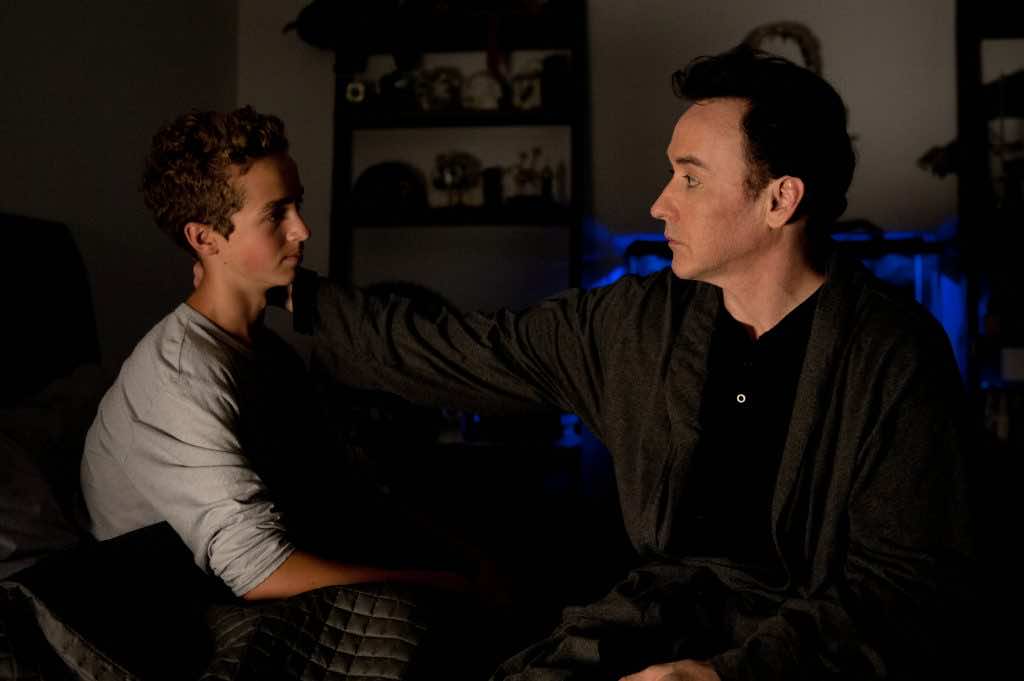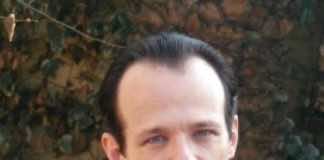 As noted in my recent review of Maps to the Stars and in an article “Miami New Times” published a few days ago (read it here), the concept of the flesh is an important element in understanding the films of David Cronenberg. “I’m an atheist,” says the 70-year-old Canadian director speaking via phone from Toronto. “I don’t believe in an afterlife and so on, so for me that is what we are.”
As noted in my recent review of Maps to the Stars and in an article “Miami New Times” published a few days ago (read it here), the concept of the flesh is an important element in understanding the films of David Cronenberg. “I’m an atheist,” says the 70-year-old Canadian director speaking via phone from Toronto. “I don’t believe in an afterlife and so on, so for me that is what we are.”
Some film critics have deemed him redundant, even antiquated in his thematic interests. When, in fact, his focus on the flesh exists as a foundation that makes his films more than schlocky shock cinema. Since the early ’70s he has brought an eerie humanism to horror, perfecting it in the later part of the decade from Rabid (1977) to the Brood (1979). He reached a pinnacle in the ’80s from Scanners (1981) to Dead Ringers (1988). In more recent years, he has extended his interest in the body to more grounded, psychological, if not still visceral, disturbing fare. A History of Violence (2005) stands as one of the greatest examples.
Cronenberg arrived on the independent film scene during an era of filmmaking known for challenging the boundaries of taste. The word “exploitation” and “gore” were often bandied about. But Cronenberg had a deeper connection to the post-60s era of disillusionment. There was something sad and foreboding in his horror. It’s even empathetic. The reason the exploding head of Scanners disturbs so fundamentally is how Cronenberg sets up the tragic character with humanity, despite his possession of an otherworldly talent to enter the minds of other people.
There have been supernatural elements in many of Cronenberg’s movies, most recently including several appearances by phantasmal apparitions that come to haunt a couple of his characters in his latest film. Still, the director confesses he does not believe in anything mystical, supernatural or even spiritual. To a man who describes himself as an atheist, the flesh is sacrosanct. “I mean the more we accept that and recognize it, I think the better off we’d be,” says Cronenberg about his concept of the flesh, “but in any case, the body is what you go to. It’s the primal fact of our existence, so it’s always been a significant thing for me whether metaphorically or literally. When you think of it, what does a director direct? What do we photograph most in movies? Well, it’s the human body. We’re photographing flesh.”
Despite the harsh dissection of Hollywood and those who work in the industry/city in Maps to the Stars, he admits to a great empathy for those who enter the gauntlet of Hollywood, noting there is no one in that machine who gives more to it than the actor, for, he says, “Flesh is their instrument.” His new film features some incredible performances by Julianne Moore and Mia Wasikowska, who respectively play an aging actress and her assistant. Havana Segrand hires Agatha Weiss, who bears scars of a childhood fire, upon the recommendation of Carrie Fisher (who plays herself in the film). Fisher tells Havana she became friends with Agatha via Twitter. But Agatha’s priority goes beyond penetrating the inner circles of Hollywood. She is on a quest to reunite with the Hollywood family that disowned her. She has a younger brother Benjie (Evan Bird), an actor who, at 13, has just been released from rehab. Their mother Christina (Olivia Williams) is eager to get the kid back to work. Meanwhile, their father Dr. Stafford Weiss (John Cusack) is a new age guru who hosts an “hour of power” on TV and makes house calls to celebrities like Havana, who is struggling for work and being haunted by visions of her legendary mother actress Clarice Taggart (Sarah Gadon), who perished in a fire at a young age.
Agatha had been “put away” to the far away reaches of Jupiter … Florida … in a mental institution to receive treatment for her pyromania. But now that she is 18, she is free, released on her own recognizance. She is also a person transformed by fire both inside and out. Though her family has achieved a level of success, no matter their dysfunction, it is Agatha who has transcended her experiences, and her ultimate confrontation with her family, so absorbed by the superficial world of Hollywood, will indeed make for fireworks. “She’s experienced things that they had been kind of denying and covering up,” says Cronenberg, “and she’s experienced all those things and has the marks on the body to prove it.”
Asked why he made the film, Cronenberg says he was more interested in the family drama instead of making a critique of Hollywood. “Well, it was primarily Bruce Wagner’s script, the characters, the dialogue. It wasn’t as though I’d been obsessed for years about Hollywood … In fact, I have great affection for Hollywood, the way most people do, and I would have never thought that I would make a movie about Hollywood. It wasn’t really in my portfolio until I read Bruce’s script.”
Cronenberg notes Wagner brings a lot of experience to the screenplay, having written it while he was a limo driver in Los Angeles in the early ’90s, similar to Robert Pattinson’s character in the film, who is somehow dragged into Agatha’s web. But the director has also had experience with Hollywood, though he prefers to work as an independent filmmaker. He notes there were projects that fell though for him in the big studio business and recalls varied successes in the industry, which he admits a sort of ambivalence toward. “I live in Toronto and most of my movies have been co-productions between Canada and Europe, so there’s not been much of Hollywood involved, but on the other hand, there have been many projects that had almost happened and also movies like M. Butterfly and The Fly. There were Hollywood studios that were distributing the films, like Warner Brothers or FOX and so on, so I’d had meetings with studio executives about casting, about distribution, about script, about all kinds of things, and I can certify that what Bruce portrays in the movie is accurate.”
He says what he knows of the surreal and absurd reality of the Hollywood industry was something he could channel in Maps. “Although it isn’t the totality of my life, it is certainly something that I had dipped my toe into and can confirm from my own experience, and I’m sure that it helped me make the movie resonate, to feel real because I knew the reality.”
But it all comes back to the people and characters in the film, which Cronenberg agrees stands as a protest against a system that dehumanizes people for the entertainment of others. “There is that element,” he admits. “It’s kind of a bubble city—Hollywood. It’s not a city, technically, but the concerns are so incestuous, which is another theme of the movie, but everybody thinks the same way; everybody wants the same thing. Everybody wants to be an actor or writer or director. It would be a difficult town to live in if you weren’t obsessed with the business, you know? And though I am a filmmaker, I’m not obsessed with the business, and that’s why I still live in Toronto, my hometown. I could never live in Hollywood as a result.” He then offers a warning to those who aspire to enter the Hollywood business: “I think that obsessiveness can deform people. As I’ve often said, Hollywood’s like this incredibly dense planet with a huge gravitational pull. It pulls in people from all over the world, but then it’s very hard to break away from that, and the force of that pull can deform you and your relationships and the course of your life of which you aspire to. It’s all very insular.”
Finally, the director does not want anyone to read too much into the delay of his film to reach the home country of Hollywood. Maps to the Stars premiered at the Cannes Film Festival early last year. Cronenberg says it was only logistics that delayed the film’s release in the U.S. “Focus World took on the distribution in the U.S.,” he notes, “and they felt, given the time we made the deal with them, and what was happening at the end of the year when so many movies get released because everybody’s thinking about Golden Globes and Oscars and stuff, they thought it would be a very crowded marketplace. I think that’s correct, and I think they thought they would have a much clearer road to potent distribution if they waited until this year.”
He does admit that the fact the film is already available on home video in other parts of the world besides the U.S. is a bit odd for one of his movies. “It’s very unusual because it’s been released in Canada,” he admits. “It’s been released everywhere in Europe already, very unusual for the U.S. to be so late, but it’s just the way it happened. It’s really Focus’ call, and I’m assuming they know what they’re doing.”
You can read much more about my conversation with Cronenberg in “Cultist,” the art and culture blog of the “Miami New Times” where he shares what he likes about Wasikowska’s acting and more on why the flesh is the pinnacle of our beings:
Then there is also this small piece I wrote in the Miami Herald where he discusses Hollywood some more and Wagner’s script. He also talks about how Moore was one of the earlier actresses to commit to the role despite some financial hardships in getting the production off the ground. Jump through the logo below to read that:
Here’s the trailer:
Maps to the Stars opens Friday, Feb. 27 in our South Florida area at O Cinema Wynwood in Miami and Cinema Paradiso Fort Lauderdale. On opening night at O Cinema’s 9:15 screening, I will introduce the film and probably stick around for a second viewing and chat for a bit afterward. The film opened in the U.S. a few days ago and will continue to open across the country. For other screening dates in other parts of the States, visit this link. Focus World provided an on-line screener for the purpose of this interview. All images in this article are courtesy of Focus World.














